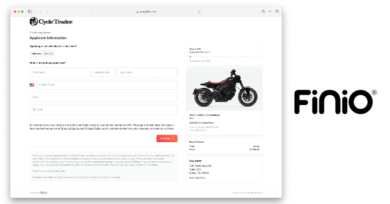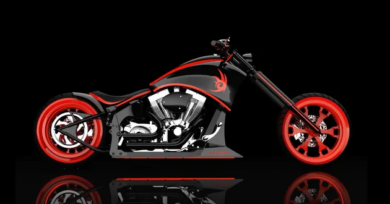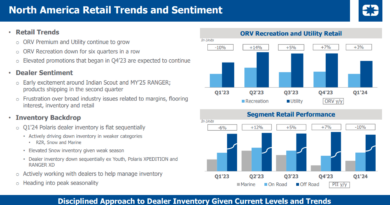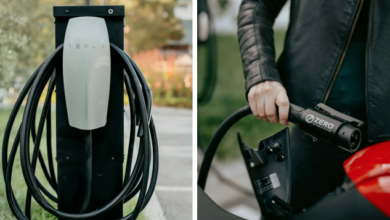Jun. 15, 2009 – Greater the staffing, the greater the online reward?
By Jon Mohr
Contributing writer
Powersports dealers that have an employee dedicated to online sales generate almost 18 percent more revenue per month from their Web sites, on average, than those who do not. And the percentage of dealerships that said their online sales were “up substantially” from 2007 to 2008 was 16 percentage points higher among dealers with employees dedicated to the Internet than at dealerships without those positions.
However, the number of dealers who employed online sales specialists fell by 7 percent during that same span, and the percentage of online leads that are eventually converted to actual sales are almost the same for dealerships with Internet employees (22.4 percent) and dealerships without (22.1 percent).
Those were among the results of a national dealership survey conducted for Powersports Business by Irwin Broh & Associates, a marketing research company based in Des Plaines, Ill.
One important question the 150-dealer survey sought to answer was what advantages, if any, there are to having one or more employees dedicated to online sales as the Internet becomes a tool powersports consumers are turning to with increasing frequency.
While dealerships that employ online sales specialists and those that do not both said their Internet business grew from 2007 to 2008, the results indicated that dealers with dedicated online employees did more business and generated greater revenue online. Perhaps even more significantly in today’s economy, just 9 percent of those dealers said their business was down in 2008 vs. 17 percent of dealers without those employees.
Doug Mueller, parts manager at McGuire Harley Davidson in Walnut Creek, Calif., says his dealership’s eBay business has grown so much since he started it six or seven years ago that the workload eventually became too great for him to handle alone.
“I came to the realization that ‘Hey, this is a lot of work. I can’t do what I’m supposed to do and then do the eBay stuff,’” Mueller said. “So we actually took one of the guys that was a detailer here — he just detailed bikes — and moved him up into it. So he just does that full time.”
McGuire Harley Davidson sells a lot of noncurrent parts and accessories inventory on eBay and is able to make money on products the dealership otherwise “would never have been able to get rid of.” The business also has found success buying used motorcycles at auctions, then selling them on Craigslist. One of their salespeople doubles as the specialist for those transactions, and McGuire also has asked its shipping and receiving employee to process all of the Internet orders that are placed through Harley Davidson’s online site, which allows customers to place orders on the Web, then select the local dealers who will handle those orders.
The approach taken at McGuire Harley Davidson may provide a clue as to why, although powersports dealers’ online sales increased in 2008, the number of their online sales employees fell. With the economic slowdown, many dealerships witnessed a slump in their brick-and-mortar traffic as well, leaving more time for the guy at the parts counter or the sales associate to pull double duty.
Such is the case at FW Speer Yamaha in Passaic, N.J. The dealership became aggressive with its Internet sales efforts over the winter when business was slow and, as owner Vito Addabbo explained, “we weren’t doing anything anyway.” An employee who works the parts counter now dedicates much of his time to Internet sales because in-store traffic has become so scarce.
“We just started doing an eBay store and we’re moving more of our Star accessories via eBay, probably more than what we are retailing over the counter now. Business is pretty bad,” Addabbo said. “The Internet has enhanced our ability to survive, but I don’t think I’d want to do it as a full-time thing to tell you the truth. You’ve got to touch this stuff, you’ve got to feel it and see it. You need to develop a relationship with your customers and make them want to come back here.”
The survey results seem to bear out the importance of a face-to-face relationship when it comes to selling. The percentage of online store sales for used units, parts and accessories and apparel is virtually the same when comparing dealers with online sales specialists to those without them. And dealers with dedicated Internet employees do just slightly better (34 percent to 30.2 percent) when it comes to new unit sales online.
Mueller does not foresee a sky-is-the-limit future for online sales at Harley dealerships. “That’s a different customer base,” he said. “A lot of them like to come in, they like to deal with salespeople … I don’t really see [our Internet sales] getting that big. But you never know. I’m surprised a lot of times the way things work out.”
In tough economic times, the wait-and-see approach with respect to online staffing will likely be a popular option for many powersports dealers. Although it seems clear that the greater the time and effort a dealership puts into Internet sales, the greater the return. One opportunity provided by slower in-store sales is the ability to channel more resources online without having to create a new position to do so.




